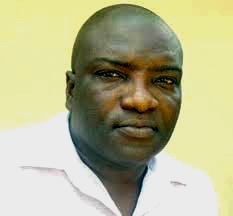Aftermath of contempt case: Journalists call for calm
 Reactions from media players suggest that the recent events at the Supreme Court will not curtail press freedom, contrary to views expressed by some members of the public.
Reactions from media players suggest that the recent events at the Supreme Court will not curtail press freedom, contrary to views expressed by some members of the public.
Advertisement
The Supreme Court, recently barred Mr Sammy Awuku, the Deputy Communications Director of the NPP from its hearings and jailed Ken Kuranchie, Managing Editor of the Daily Searchlight and Stephen Atubiga of the National Democratic Congress (NDC) Communication team for making contemptuous comments about proceedings at the court.
Prof. Kwame Karikari, Executive Director of the Media Foundation for West Africa and Mrs Gina Blay, President of the Private Newspaper Publishers Association of Ghana (PRINGPAG), told the Daily Graphic that the judges, by their act, were not preventing journalists from reporting or commenting on the matter but rather asking for responsible reportage.
“The court did not say that journalists should not write or comment on the case before it but rather journalists should not write or say things in a manner that would scandalise the court,” Prof. Karikari said.
While a section of the media was of the view that the punishments were harsh, many others said that it was enough to deter others from making unguarded comments.
Reacting to the sentence, Prof. Karikari said it was difficult to evaluate the sentence since the court could only give a punishment that would be commensurate with the offence.
But Mrs Blay, while agreeing that the decision would not curtail press freedom, stated that the 10-day sentence was a little harsh.
According to her, Kuranchie, being a journalist, should have been cautioned to serve as a deterrent to others instead of being confined.
“What the judges did is to ask for more responsibility in the approach to the work of journalists as they report on the court case, “ she said.
She stated that the court had frequently urged the media to contact lawyers if they found issues pending before the court technical since journalists were not lawyers.
“After several cautions, they thought they should use the hammer,” she said.
The PRINPAG President and publisher of the Daily Guide newspaper stated that journalists’ diction was very important in order to not get them into trouble.
“As journalists, we must know how to couch our words. Ken thought his words were correct but his words had a different connotation for the judges. By the time he apologised profusely, it was too late,” she added.
The Supreme Court took issues with a Daily Guide headline that read “Atuguba goes wild”.
But Mrs Blay observed that Daily Guide was mentioned not because of inaccurate reporting but rather the use of the word ‘wild’.
Both Prof Karikari and Mrs Blay urged caution for journalists.
“The lesson for journalists is to read what got the man into trouble and use it as a benchmark for their reportage,” Prof. Karikari advised.
For Mrs Blay, the way of being caught in the web of contempt was for journalists to report facts.
“Ken Kuranchie did not report what was going on in the court but what he saw as wrong. We will be more careful and report black as black and white as white,” she said.
Sammy Wiafe, a broadcast journalist with Citi Fm, saluted the Supreme Court for putting a brake on people who might want to take the law into their own hands.
He, however, observed that the move could curtail the freedom of speech, especially when the journalist was expected to communicate with the people in order for them to understand the court proceedings.
By Seth J. Bokpe, Sarah Mensah & Alima Awudu



